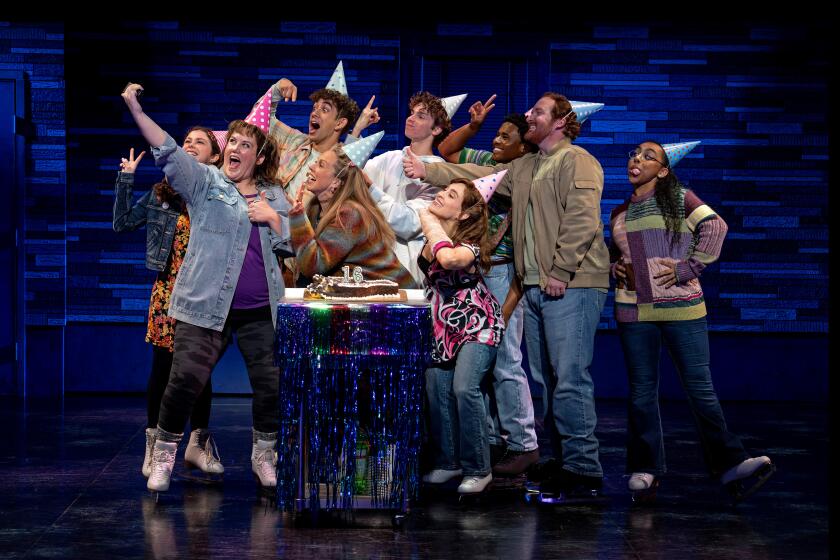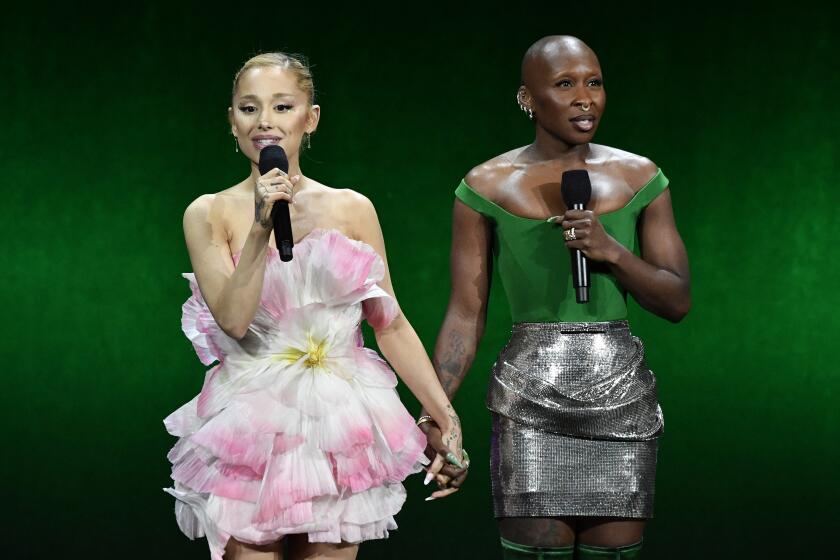Sense of Drama Fades From the Theater
Leaving a performance of Jon Robin Baitz’s “Three Hotels” at the Mark Taper Forum, I couldn’t help but feel a nagging discontent. First, there was an awareness of how peculiar it was to finish an “evening of theater” and still have more than enough time to catch a movie; the play lasts barely 90 minutes. Yet this is a serious play about serious issues (“Capitalism and Conscience,” Calendar, March 24). The production is very handsomely mounted, ably directed and acted. So what’s the problem?
Well, given what it has going for it, it just doesn’t go far enough and the distance by which it falls short is significant.
Ultimately, we never got to see “the play.” It was as if we had been given 90 minutes of very vivid and detailed background about two people and their relationship and the understanding that when they would next encounter each other the “real drama” would occur.
But the evening ended before this scene happened or before it was ever written. Has such a confrontation become a cliche, old-fashioned or in some way inadequate as a vehicle for a writer to deliver the goods?
*
I’m not opposed to the devices of the monologue, soliloquy or direct address to the audience per se. Indeed, in the last 50 years we have seen playwrights use these devices brilliantly and courageously (“Our Town,” “After the Fall,” “A Man for All Seasons,” much of Brecht and Brian Friel, for example). I am, however, beginning to feel an insidiousness in the nature and degree to which these devices are currently used in the theater.
The warm and fuzzy relationship with audience as a best friend, willing listener or attentive therapist is reaching a saturation point, given how frequently the contemporary theater plays host to one-person shows, performance artists, Spalding Grays and what have you.
Too often the cozy introspection becomes a performance of the self for the sake of the self alone, where whatever revelations may occur cannot stand the withering exposure to a strongly confronting point of view; not unlike therapy sessions that are filled with personal revelation and no significant change in how a life is lived.
Although this kind of personal theater can be exciting and artistically valid, an overreliance on it is another reflection of the sad state of the economics in much of the theater: the solo actor (or in the case of the Taper, two solo actors) being the ultimate “small-cast, single-set” mentality many producers seem forced to live by.
More important, this trend robs the theater of its most basic element: two characters in conflict with each other. In the case of “Three Hotels,” it’s precisely because the characters are so complete and their situation so clearly conceived that not to bring them onstage together amounts to a grossly misguided sense of drama.
More to Read
The biggest entertainment stories
Get our big stories about Hollywood, film, television, music, arts, culture and more right in your inbox as soon as they publish.
You may occasionally receive promotional content from the Los Angeles Times.










